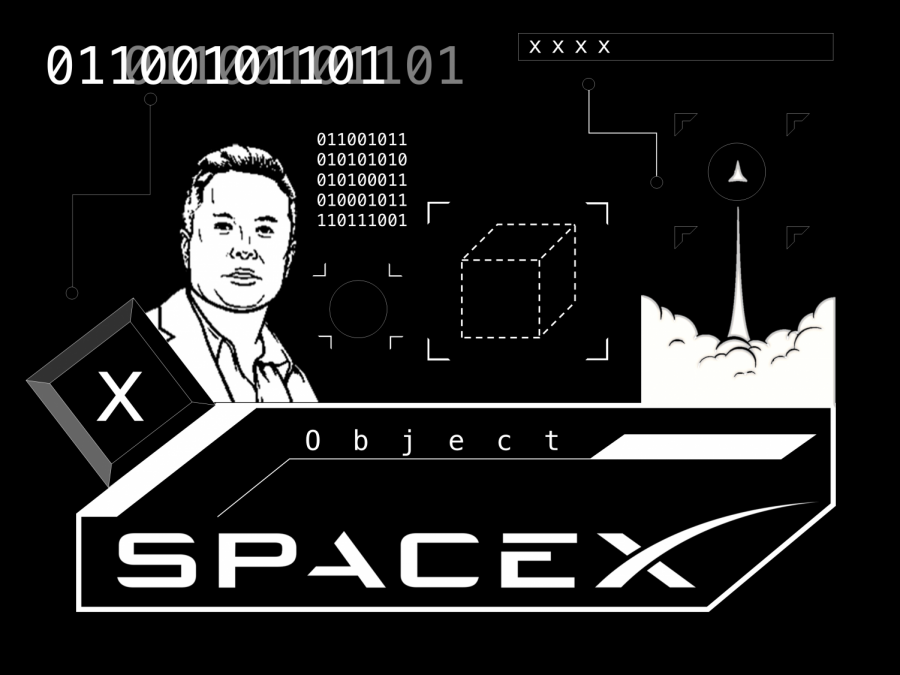What’s the deal with Elon Musk?
November 20, 2021
Elon Musk has recently sold 5.2 million shares of Tesla stock for a total of $5.8 billion. Is that what he did to save the world from hunger?
Tesla also became the sixth company in history to reach a market value of $1 trillion, more than the combined value of the twelve largest automakers in the world.
The sale comes shortly after Musk conducted a Twitter poll asking his followers if he should sell 10 percent of his shares in order to increase the amount owed in taxes. He said he would abide by the results, and 58 percent agreed he should sell.
Because Musk does not receive a cash salary, he pays income tax only when he sells shares.
More stock sales are expected given that he has sold only about 3 percent of his Tesla shares so far, but he has not disclosed what he will do with the proceeds. The incoming cash from the sold stocks has created a stir among major charities, hoping to find wealthy donors.
Melissa Berman, CEO of Rockefeller Philanthropy Advisors, a nonprofit that advises on charitable giving, said that “his opportunity to have great impact to donate very significant sums of money to leading organizations that are dealing with the most pressing problems with global poverty…”
This is especially fitting, as Musk posted a tweet on Oct. 31 claiming that “If [World Food Programme] can describe…exactly how $6B will solve world hunger, I will sell Tesla stock right now and do it.”
Is this statement accurate? How feasible is it for Musk to contribute to a conflict affecting the impoverished across the globe?
The answer is…somewhat.
Writing for NPR, Joanne Lu synthesizes expert opinions on the “$6 billion debate.” She notes how it is practical for Musk to specifically ask the World Food Programme (WFP) for details regarding how it plans to spend the $6 billion, and with the WFP’s good track record when it comes to emergency aid, she believes the WFP can provide an answer.
While emergency relief programs are amazing and all, efforts made by organizations can have positive impacts for a brief time. David Beasley, the head of the WFP, responded to Musk that $6.6 billion will be the cost of providing one meal a day for one year to the population in need, coming in the form of food aid, cash or vouchers. This concept does not consider days following the 365, as critics point out.
Lindiwe Majele Sibanda, a professor, director and chair at the African Research Unities Alliance’s Centre of Excellence in Food Security at the University of Pretoria in South Africa, calls for large donations going toward “long-term solutions that address the root causes of famine and hunger” such as better farming techniques and a stronger safety net to meet food needs in times of crisis.
Musk may use his remarkable wealth to support this cause, but it is not entirely clear to what extent. He signed the Giving Pledge in 2012, a commitment by some billionaires to give at least half of their wealth to philanthropy in their lifetime or upon their death. The Musk Foundation, created in 2001, has over $200 million in assets, but that’s fairly insignificant when compared to his total wealth.
It would not be his Twitter followers that inspired him to sell stock; rather, numerous tax incentives were continually set in place and 22.9 million stock options he holds are due to expire by August of next year, where we will have to pay taxes on the value of those new shares.
Musk received these options as part of his 2012 compensation package, but they are worthless unless he exercises them before the deadline.
There is a “double bonus of donating” Tesla stock according to Brian Mittendorf, an accounting professor at the Ohio State University. Shares that are donated to charity are not subject to capital gains tax, as they would be if they were sold.
What will become of Elon Musk? That is yet to be determined. But we may overestimate the ability of one person’s wealth to end a global crisis. Musk can do whatever he pleases, but in the end, his actions will reflect what is best for him.










































































































